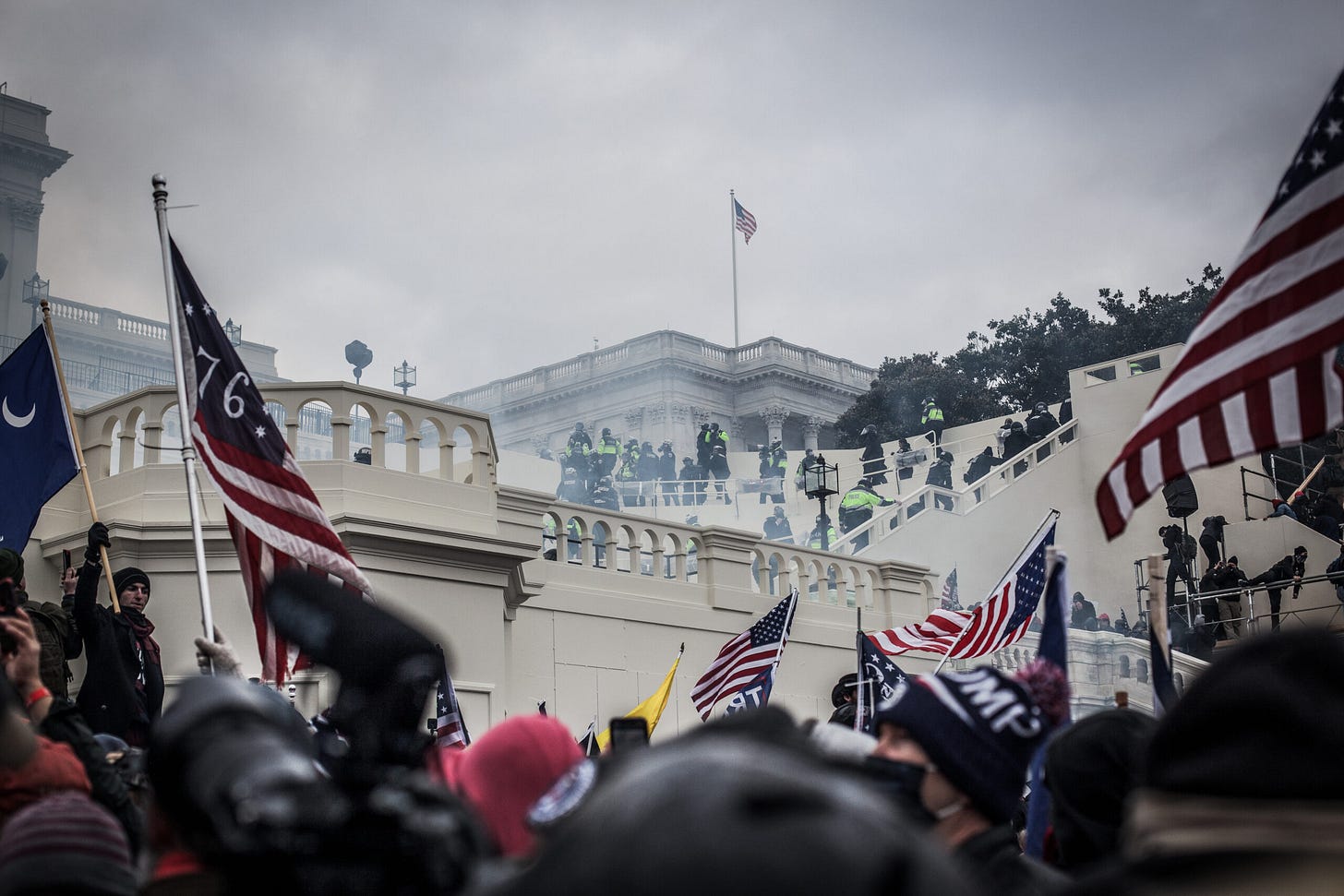Putting the Jan. 6th Committee Report in the Context of America’s Democratic Story
Our nation is in the midst of a decision about democracy.

Last night, the House January 6th Committee published its final report, revealing the committee’s findings and recommendations. Earlier in the week, for the first time in the history of our democratic republic, Congress referred a former president to the Department of Justice for prosecution. One of the alleged crimes, the evidence of which is available for all to see, is insurrection. To live in interesting times is usually regarded as a curse, but it is also a great moral opportunity.
We Americans are at a moment of decision. The moment began years ago, and its final resolution will depend on the outcomes of at least several more elections. By the end, we will have decided collectively whether to continue our history as a republican democracy or to begin a dramatic departure from our past with the advent, whether gradual or sudden, of an authoritarian state. In either case, our future is our choice.
Our fate may await the resolution of the struggle inside the Republican party, toward which the Democratic party seems committed to act as observer and critic. The authoritarian forces currently prevailing in that struggle are aimed at the subversion of American democracy. To insist that the only elections worth accepting are those that one’s side wins is to undercut the basic principle of democracy. And this requires, as the former president now admits, rejection of the Constitution and the principles around which it was framed.
Our destiny may well depend on the restoration of the ancient republican ideal of civic virtue, the tribute democratic citizens pay for participation in the public life of our nation. At the least, this will depend on wholesale rejection of election denial, opposition to the peaceful transfer of power, and denial of the authority of election officials.
Historians remind us that the 1930s and 1940s saw rising sympathy in America for fascists, before Pearl Harbor clarified the threat that we and other democracies faced. And recall that the “America First Committee,” whose moniker the modern authoritarians claim, was founded after France had capitulated to the Nazis and after the United States was already a participant in an active but undeclared naval war against Germany. Today’s authoritarian right-wing militias don’t replicate exactly that era’s fascism, but many contemporary America Firsters certainly share sympathies with the nationalists, anti-Semites, and racists of the earlier order.
The cure for this authoritarian relapse is the rejuvenation of the principles of republican government: democratic accountability, a sense of the commonwealth, rejection of corruption in government, and most of all the restoration of civic virtue and citizen engagement.
In the 1940s, all of us in the Ottawa, Kansas, public schools took a class called Civics. It was about living in a democracy, participating in public affairs, reading the papers, and paying attention. It was basic yet profound. It is difficult to find a public school system in our nation now that has a mandatory civics class. Young Americans find it possible, even easy, to transition into adult life with little knowledge of how and why our nation has our form of government, what Congress does and does not do, how our democracy is supposed to work, and the dangers of eroding it.
We are all conditioned to focus our attention on our rights, but our duties deserve equal consideration. This central point is the focus of the famous story about a concerned citizen outside the Constitutional Convention in Philadelphia asking Benjamin Franklin what the Founders were creating in there: “A Republic,” Franklin replied, “if you can keep it.” He knew, as did most of the other Founders who were students of the ancient republics, that “keeping it” required citizen involvement, participation, and engagement. There were duties to perform. Only by performing our civic duties could we protect our rights.
In 2020, we as Americans made a fateful decision to choose democracy over authoritarianism. We will have to make that decision again and again without deviation or hesitation until the danger of the America First authoritarians has passed. We will have to recommit ourselves to good citizenship, to striving to be exemplars of civic virtue for our fellow Americans.
This is no time for laxity. This is the time to be the best Americans we can be.

